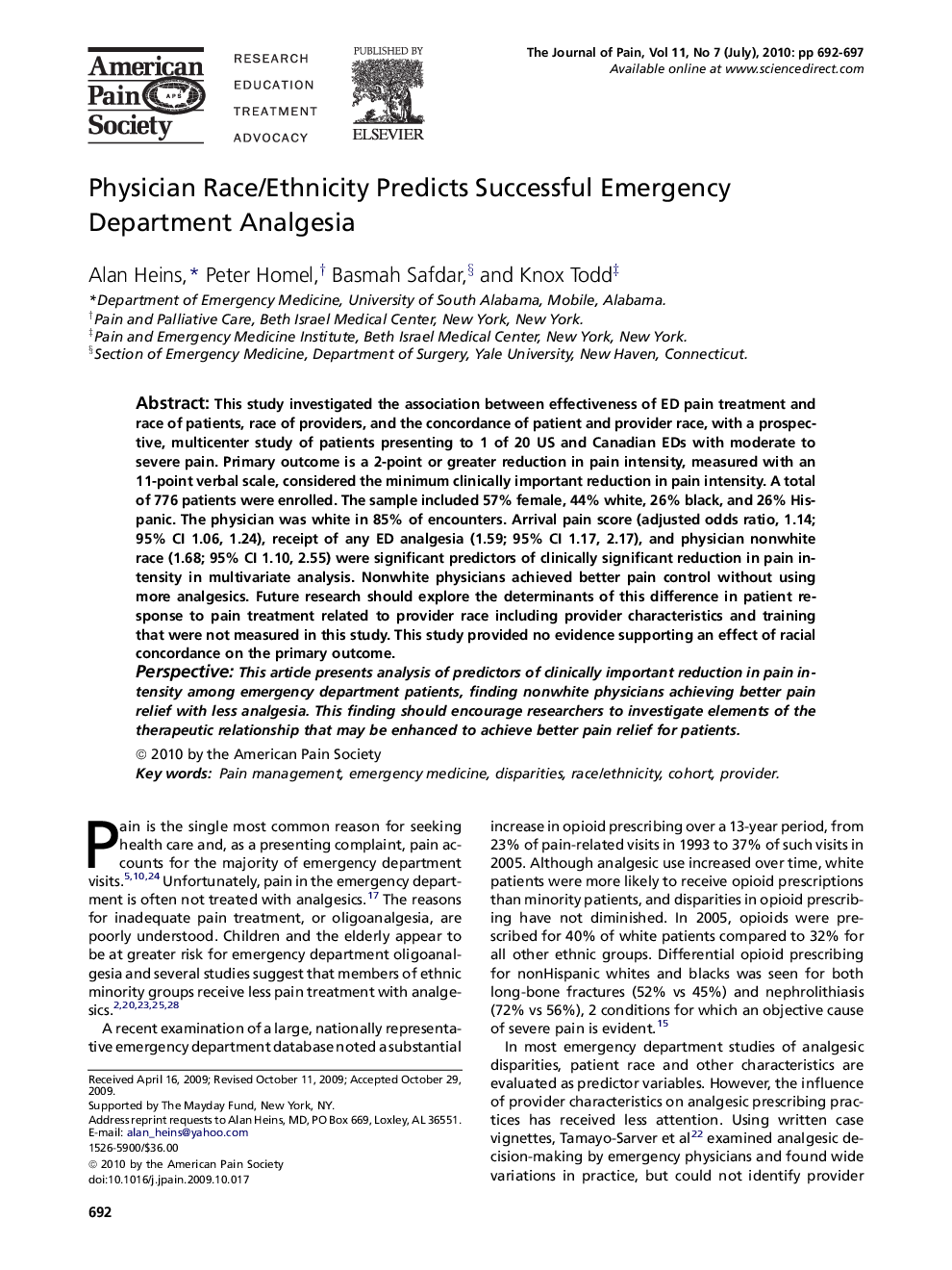| کد مقاله | کد نشریه | سال انتشار | مقاله انگلیسی | نسخه تمام متن |
|---|---|---|---|---|
| 2732575 | 1566799 | 2010 | 6 صفحه PDF | دانلود رایگان |

This study investigated the association between effectiveness of ED pain treatment and race of patients, race of providers, and the concordance of patient and provider race, with a prospective, multicenter study of patients presenting to 1 of 20 US and Canadian EDs with moderate to severe pain. Primary outcome is a 2-point or greater reduction in pain intensity, measured with an 11-point verbal scale, considered the minimum clinically important reduction in pain intensity. A total of 776 patients were enrolled. The sample included 57% female, 44% white, 26% black, and 26% Hispanic. The physician was white in 85% of encounters. Arrival pain score (adjusted odds ratio, 1.14; 95% CI 1.06, 1.24), receipt of any ED analgesia (1.59; 95% CI 1.17, 2.17), and physician nonwhite race (1.68; 95% CI 1.10, 2.55) were significant predictors of clinically significant reduction in pain intensity in multivariate analysis. Nonwhite physicians achieved better pain control without using more analgesics. Future research should explore the determinants of this difference in patient response to pain treatment related to provider race including provider characteristics and training that were not measured in this study. This study provided no evidence supporting an effect of racial concordance on the primary outcome.PerspectiveThis article presents analysis of predictors of clinically important reduction in pain intensity among emergency department patients, finding nonwhite physicians achieving better pain relief with less analgesia. This finding should encourage researchers to investigate elements of the therapeutic relationship that may be enhanced to achieve better pain relief for patients.
Journal: The Journal of Pain - Volume 11, Issue 7, July 2010, Pages 692–697